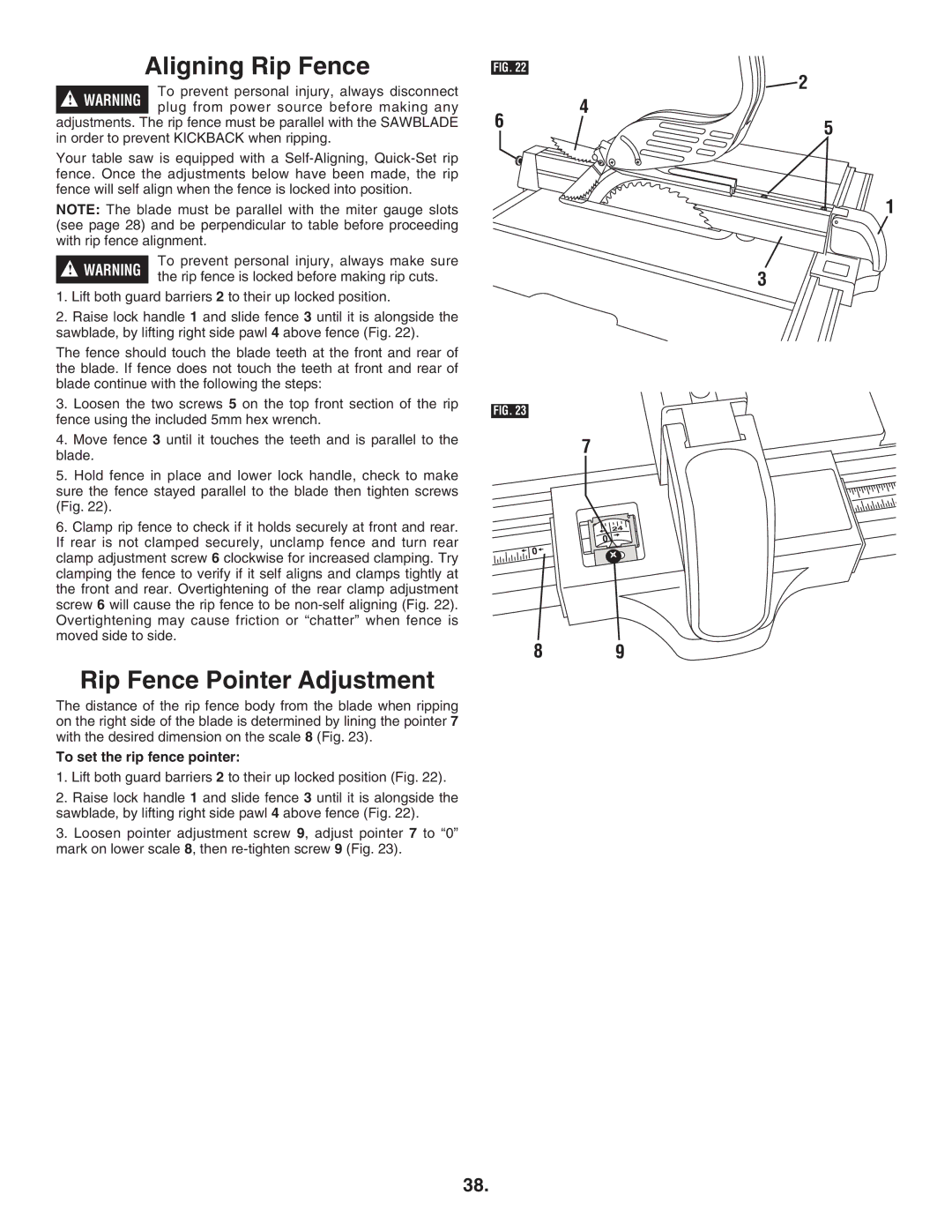
Aligning Rip Fence
To prevent personal injury, always disconnect ! WARNING plug from power source before making any
adjustments. The rip fence must be parallel with the SAWBLADE in order to prevent KICKBACK when ripping.
Your table saw is equipped with a
NOTE: The blade must be parallel with the miter gauge slots (see page 28) and be perpendicular to table before proceeding with rip fence alignment.
! | WARNING | To prevent personal injury, always make sure | |
the rip fence is locked before making rip cuts. | |||
|
|
1.Lift both guard barriers 2 to their up locked position.
2.Raise lock handle 1 and slide fence 3 until it is alongside the sawblade, by lifting right side pawl 4 above fence (Fig. 22).
The fence should touch the blade teeth at the front and rear of the blade. If fence does not touch the teeth at front and rear of blade continue with the following the steps:
3.Loosen the two screws 5 on the top front section of the rip fence using the included 5mm hex wrench.
4.Move fence 3 until it touches the teeth and is parallel to the blade.
5.Hold fence in place and lower lock handle, check to make sure the fence stayed parallel to the blade then tighten screws (Fig. 22).
6.Clamp rip fence to check if it holds securely at front and rear. If rear is not clamped securely, unclamp fence and turn rear clamp adjustment screw 6 clockwise for increased clamping. Try clamping the fence to verify if it self aligns and clamps tightly at the front and rear. Overtightening of the rear clamp adjustment screw 6 will cause the rip fence to be
Rip Fence Pointer Adjustment
The distance of the rip fence body from the blade when ripping on the right side of the blade is determined by lining the pointer 7 with the desired dimension on the scale 8 (Fig. 23).
To set the rip fence pointer:
1.Lift both guard barriers 2 to their up locked position (Fig. 22).
2.Raise lock handle 1 and slide fence 3 until it is alongside the sawblade, by lifting right side pawl 4 above fence (Fig. 22).
3.Loosen pointer adjustment screw 9, adjust pointer 7 to “0” mark on lower scale 8, then
FIG. 22
| 2 | |
6 | 4 | |
5 | ||
|
1
3
FIG. 23
7
8 9
38.
